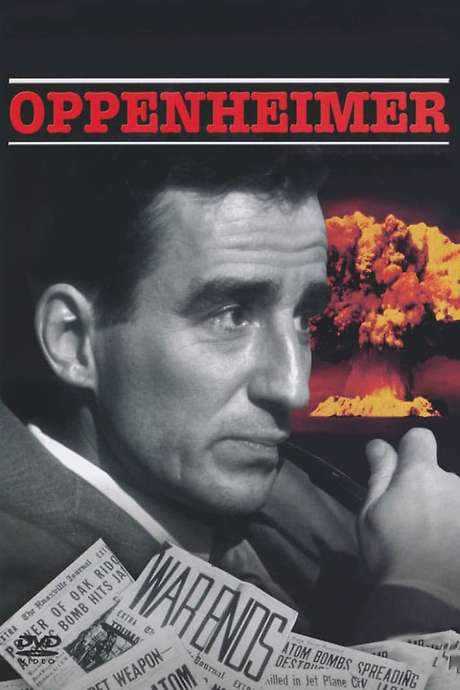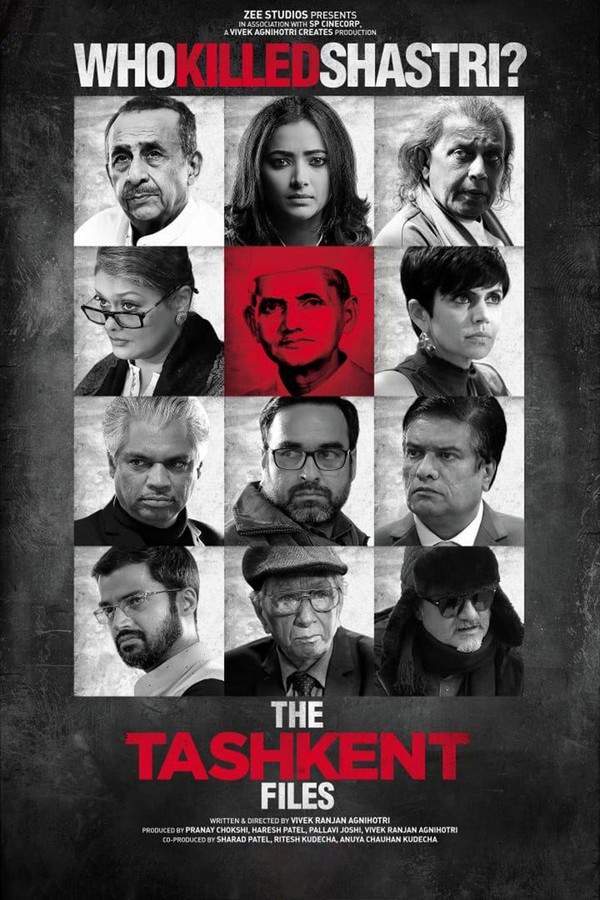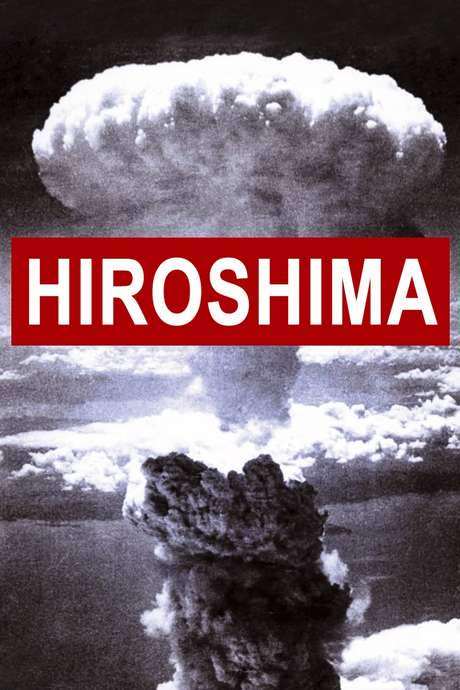
Oppenheimer
Drawing from Kai Bird and Martin J. Sherwin’s biography, American Prometheus, this film explores the life of J. Robert Oppenheimer, the brilliant theoretical physicist who spearheaded the Manhattan Project's development of the first nuclear weapons. His work ushered in the Atomic Age, forever changing the world and grappling with the profound moral and political implications of his creation.
Warning: spoilers below!
Haven’t seen Oppenheimer yet? This summary contains major spoilers. Bookmark the page, watch the movie, and come back for the full breakdown. If you're ready, scroll on and relive the story!
Oppenheimer (2023) – Full Plot Summary & Ending Explained
Read the complete plot breakdown of Oppenheimer (2023), including all key story events, major twists, and the ending explained in detail. Discover what really happened—and what it all means.
In 1945, the successful testing of the first atomic bomb marks a significant achievement for J. Robert Oppenheimer, who served as the director of the Manhattan Project at Los Alamos. However, as the political landscape shifts, key decisions regarding the bomb’s deployment are taken out of Oppenheimer’s hands and those of his fellow scientists. Following that momentous test, President Harry S. Truman orders the bombings of Hiroshima and Nagasaki, ignoring Oppenheimer’s insistence that Truman should inform Stalin before any action was taken against Japan. This oversight escalates tensions with the Soviets, leading Oppenheimer to believe that these events initiated the nuclear arms race.
Despite receiving public accolades, Oppenheimer struggles with profound guilt over the mass destruction and deaths caused by the bomb. His confrontation with Truman reveals this torment, as Oppenheimer admits his remorse, only to be reprimanded by Truman, who reinforces his own accountability for the decision to use the weapon. Oppenheimer argues for the limitation of nuclear armament development—a plea Truman dismisses, showing the chasm between them.
In the backdrop, Rear Admiral Lewis Strauss, a retired Naval officer and senior member of the U.S. Atomic Energy Commission (AEC), emerges as a key antagonist. Strauss, who had previously appointed Oppenheimer as a scientific advisor to the AEC after the war, finds Oppenheimer’s influence contentious. As Oppenheimer contends for control over nuclear proliferation, the AEC’s interest in Teller’s hydrogen bomb rises amid the escalating Cold War. Oppenheimer, aware of the significant technical challenges, discourages pursuing the hydrogen bomb, while advocating for international control over nuclear weapons.
Tensions escalate as AEC Chairman Lewis Strauss, deeply resentful after being publicly rebuffed by Oppenheimer regarding the export of radioisotopes—used by other nations to assist in developing atomic capabilities—feels humiliated. Oppenheimer’s suggestions for U.S.-Soviet negotiations post their own bomb detonation further alienate him from Strauss, who believes that if the U.S. develops a hydrogen bomb, the Soviets will have no choice but to follow suit.
With Oppenheimer’s opposition to the hydrogen bomb program, Truman ultimately approves its development, despite the scientist’s dire warnings. Strauss, convinced of Oppenheimer’s supposed collusion with the Russians during the Manhattan Project, plots to undermine Oppenheimer’s political standing. In a calculated move, he orchestrates a private hearing on Oppenheimer’s security clearances in 1954, leading to a verdict that appears predetermined.
The hearing is marked by manipulation and bias, particularly through the actions of Roger Robb, who is appointed as special counsel by Strauss. While Robb has comprehensive access to Oppenheimer’s security file, Oppenheimer’s legal representation is left in the dark. The outcome devastates Oppenheimer’s reputation, as the board rescinds his Q clearance, significantly diminishing his influence over nuclear policy.
In 1959, during Strauss’ Senate confirmation hearing for the Secretary of Commerce position, accusations arise about his motivations behind orchestrating Oppenheimer’s disgrace, ultimately leading to a Senate vote against his nomination. A gesture of redemption arrives in 1963 when President Lyndon B. Johnson awards Oppenheimer the Enrico Fermi Award, symbolizing a shift in his public perception. Flashbacks showcase a pivotal conversation between Oppenheimer and Einstein, revealing Oppenheimer’s lingering belief that their actions had unleashed a catastrophic chain reaction—the nuclear arms race—that could ultimately lead to global destruction.
Last Updated: November 07, 2024 at 22:36
Ending Explained – What Happens at the End of Oppenheimer?
Still wondering what the ending of Oppenheimer (2023) really means? Here’s a spoiler-heavy breakdown of the final scene, major twists, and the deeper themes that shape the film’s conclusion.
Oppenheimer’s story centers on the complex psychological and moral struggles of J. Robert Oppenheimer, the physicist who developed the first atomic bomb. By the end of the film, it’s clear that Oppenheimer is haunted by the consequences of his creation. After helping test and deploy the bomb in Hiroshima and Nagasaki, he begins to grapple with immense guilt, knowing that his work has unleashed unparalleled destruction. Despite not being a spy or deliberately betraying his country, he is targeted by those who see him as a threat to national security, especially Lewis Strauss. Strauss resents Oppenheimer for challenging authority and publicly criticizing the use of nuclear weapons, and he seeks to strip him of his security clearance to destroy his reputation.
The film culminates in a tense hearing where Oppenheimer’s loyalty and integrity are questioned. Throughout, Nolan emphasizes that Robert’s internal conflict is at the core of his character—he wanted to do good but was pulled into a devastating cycle of moral regret. Although he is ultimately denied clearance, this rejection symbolizes the broader condemnation of his moral ambivalence and the difficulty of reconciling scientific achievement with its consequences. In the end, Oppenheimer walks away having lost much of his status but gaining a profound awareness of the personal and ethical toll his work has exacted. As he faces the ghosts of his past, he embodies the tragic figure of a man who helped create a weapon of mass destruction but also understood the profound weight of his actions, forever marked by the devastating power he helped unleash. His story closes with a haunting reflection on the moral costs of scientific progress and the relentless pursuit of knowledge, leaving viewers to ponder the true meaning of responsibility in the face of such destructive innovation.
Last Updated: June 25, 2025 at 08:59
Explore Movie Threads
Discover curated groups of movies connected by mood, themes, and story style. Browse collections built around emotion, atmosphere, and narrative focus to easily find films that match what you feel like watching right now.
Movies about the moral weight of creation like Oppenheimer
Stories of brilliant minds grappling with the devastating consequences of their own inventions.If you were captivated by Oppenheimer's exploration of scientific genius and moral consequence, this list is for you. Discover other movies that delve into the heavy responsibility of creators and innovators, featuring similar tales of world-changing discoveries and the profound ethical dilemmas they unleash.
Narrative Summary
These narratives typically follow a genius protagonist through their ambitious journey of creation, culminating in a moment of triumph that is immediately undercut by dread. The story then shifts to a deep, personal reckoning with the unintended, often catastrophic, consequences of their work, leading to a crisis of conscience and legacy.
Why These Movies?
Movies in this thread share a core focus on the 'Frankenstein' dilemma, where creation turns into a curse. They blend high-stakes intellectual drama with deep, character-driven explorations of guilt, hubris, and the irreversible impact of a single idea, resulting in a heavy, thought-provoking viewing experience.
Tense political paranoia thrillers like Oppenheimer
High-stakes stories where institutions turn against the individual in a climate of suspicion.For viewers who appreciated the intense, anxiety-driven hearings and political betrayals in Oppenheimer. This collection highlights movies with similar themes of institutional persecution, where a character's loyalty and legacy are dismantled in a high-stakes, tense atmosphere of suspicion and intrigue.
Narrative Summary
These films often use a non-linear or framed narrative, intercutting between the protagonist's past achievements and their present-day ordeal within a hostile judicial or political system. The conflict is less about physical action and more about psychological warfare, wordplay, and the dismantling of a reputation, leading to a personal and professional downfall.
Why These Movies?
These movies are grouped by their masterful building of tension through dialogue, editing, and a pervasive sense of institutional distrust. They share a specific vibe of anxiety and claustrophobia, driven by thematic focuses on betrayal, the abuse of power, and the fragility of truth in the face of political agendas.
Unlock the Full Story of Oppenheimer
Don't stop at just watching — explore Oppenheimer in full detail. From the complete plot summary and scene-by-scene timeline to character breakdowns, thematic analysis, and a deep dive into the ending — every page helps you truly understand what Oppenheimer is all about. Plus, discover what's next after the movie.
Oppenheimer Timeline
Track the full timeline of Oppenheimer with every major event arranged chronologically. Perfect for decoding non-linear storytelling, flashbacks, or parallel narratives with a clear scene-by-scene breakdown.

Characters, Settings & Themes in Oppenheimer
Discover the characters, locations, and core themes that shape Oppenheimer. Get insights into symbolic elements, setting significance, and deeper narrative meaning — ideal for thematic analysis and movie breakdowns.

Oppenheimer Ending Explained
What really happened at the end of Oppenheimer? This detailed ending explained page breaks down final scenes, hidden clues, and alternate interpretations with expert analysis and viewer theories.

Oppenheimer Spoiler-Free Summary
Get a quick, spoiler-free overview of Oppenheimer that covers the main plot points and key details without revealing any major twists or spoilers. Perfect for those who want to know what to expect before diving in.

More About Oppenheimer
Visit What's After the Movie to explore more about Oppenheimer: box office results, cast and crew info, production details, post-credit scenes, and external links — all in one place for movie fans and researchers.

Similar Movies to Oppenheimer
Discover movies like Oppenheimer that share similar genres, themes, and storytelling elements. Whether you’re drawn to the atmosphere, character arcs, or plot structure, these curated recommendations will help you explore more films you’ll love.
Explore More About Movie Oppenheimer
Oppenheimer (2023) Scene-by-Scene Movie Timeline
Oppenheimer (2023) Movie Characters, Themes & Settings
Oppenheimer (2023) Ending Explained & Theories
Oppenheimer (2023) Spoiler-Free Summary & Key Flow
Movies Like Oppenheimer – Similar Titles You’ll Enjoy
The Manhattan Project (1986) Full Summary & Key Details
Hiroshima (2005) Full Movie Breakdown
Oppenheimer (1000) Full Movie Breakdown
The Day After Trinity (1981) Full Summary & Key Details
The Atomic Cafe (1982) Plot Summary & Ending Explained
Enola Gay: The Men, the Mission, the Atomic Bomb (1980) Spoiler-Packed Plot Recap
Day One (1989) Ending Explained & Film Insights
Adventures of a Mathematician (2020) Ending Explained & Film Insights
Inside Christopher Nolan’s Oppenheimer (2023) Full Movie Breakdown
Oppenheimer: The Real Story (2023) Full Summary & Key Details
The Beginning or the End (1947) Plot Summary & Ending Explained
The Trials of J. Robert Oppenheimer (2008) Detailed Story Recap
Atomic Power! (1946) Full Summary & Key Details
Hiroshima (1953) Plot Summary & Ending Explained
To End All War: Oppenheimer & the Atomic Bomb (2023) Full Movie Breakdown











































